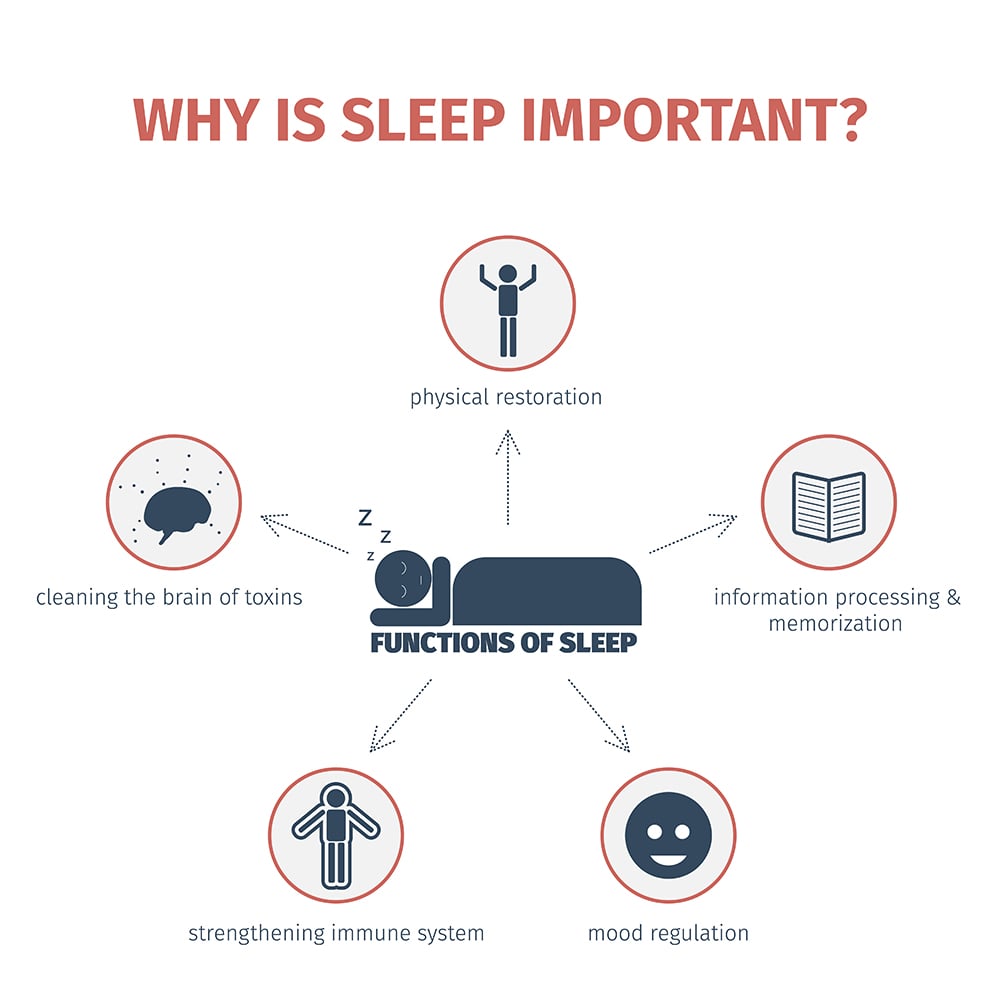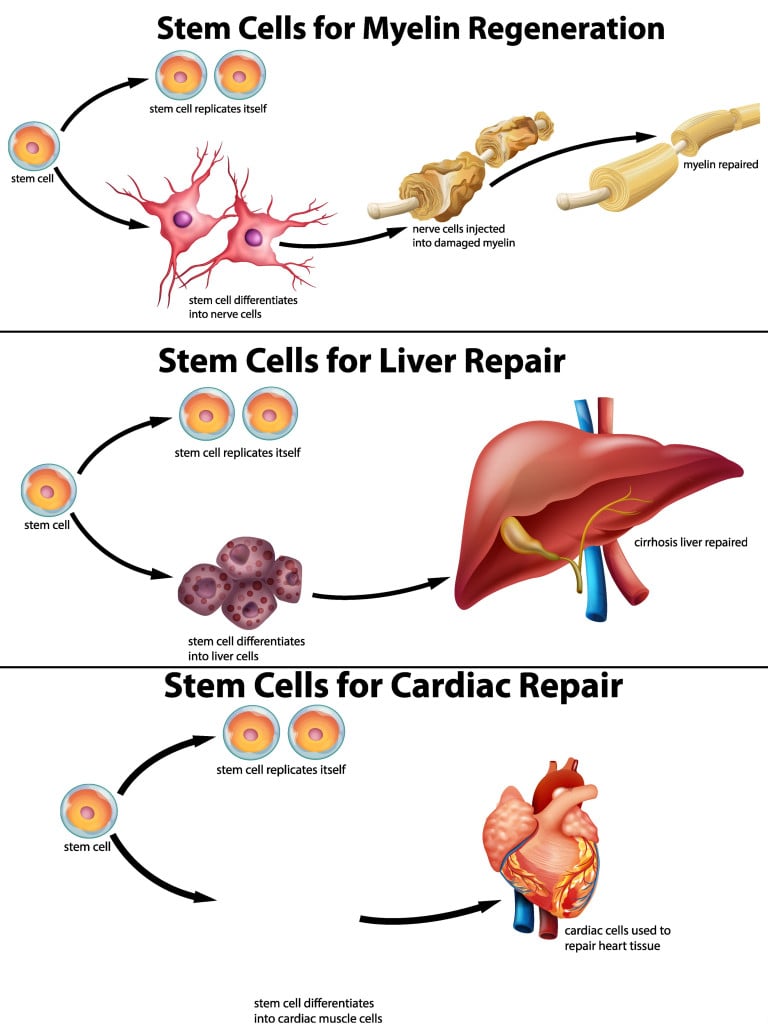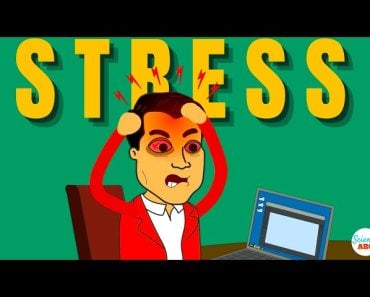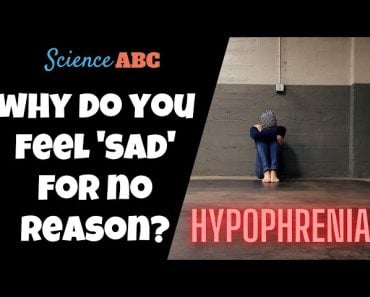Sleep deprivation disrupts the circadian clock of the skeletal muscle cells, which results in a low-grade inflammatory state. It also results in decreased levels of NADA, a neurotransmitter in the brain causing increased pain sensation.
Sleep… it too often evades us in the fast-paced, content-consuming race of life. Most people no longer sleep right anymore; we doom-scroll before bed or enjoy our bedtime revenge procrastination. After days of skimping on sleep, we find ourselves too tired and sore to even bend down to tie the laces on our sneakers.
What’s going on inside the body when it’s low on sleep? Why do you physically ache when your brain is functioning without proper rest?
Here’s what you need to know about one of the body’s basic requirements—a good night’s sleep.
Recommended Video for you:
Why Do We Need Sleep?
According to the current popular theory, sleep is the time the body uses to repair and grow itself. Just as a movie theatre staff cleans the mess of an audience after a film, the brain and body do a similar thing at the end of each day.
As bedtime approaches, your body is flooded with chemicals—neurotransmitters (the molecules that help neurons communicate) and hormones—that tell the cells it is time to spring clean.

In the brain, information is either consolidated into memories or discarded as unimportant, which makes napping after a study session a good idea. The body also rids itself of toxic byproducts produced during metabolism while you sleep.
This explains why sleep-deprived people often have poorer concentration, information recall, and a general decrease in cognitive function. The brain gets sluggish upon receiving less sleep. However, it doesn’t explain why you get sore muscles from this type of lack.
Sleep For Your Muscles
To understand how a lack of sleep causes sore muscles, we must first know what sleep does for the muscles.
Most cells in the body follow a circadian clock, meaning that they ramp up certain functions during the day and decrease those functions closer to bedtime. Your muscles are no different.
During the day, your muscles are more active and have a higher metabolic rate. During sleep, muscles gradually relax, the energy consumption drops, and most muscles go into paralysis, especially during REM sleep.
As you sleep, the muscle stem cells expand to replace older dying muscle cells, thereby repairing and rejuvenating your tired muscles.

Poor sleep saps the batteries for the circadian clock of the muscles. The muscles then fail to repair and regenerate themselves, with newer healthier muscle cells failing to develop, as older muscle cells remain. This leads to a low-grade inflammatory setting in our muscles, contributing to pain.
Studies that tested the effects of acute lack of sleep and chronic sleep deprivation (CSD) on humans and rodents show this inflammation. There is a complete catabolic hormonal state, which means a baseline breakdown state of the muscles.
However, there is another silent player in the puzzle. What road connects our muscles to our brain, aka, our sensations? The nerves. And they have something to say about a lack of sleep too!
Sleep Deprivation Might Disturb Pain-Sensing Neural Pathways
Studies have shown a strong link between sleep and pain. A study found that insomnia appeared to be a risk factor in the development of back pain in otherwise healthy adults. Similarly, the results of a survey published in 2007 showed that 2,500 fibromyalgia patients rated insomnia as a main aggravator to their pain, along with emotional distress and weather changes. Healthy patients who are sleep-deprived can develop symptoms similar to fibromyalgia, according to this paper in Nature.

In the field of sleep research, this had become their ‘chicken and egg problem’. Pain can result in poor sleep, but a lack of sleep (CSD) can also heighten pain sensation. This vicious cycle has always been known to researchers and clinicians, but the underlying mechanism was not clear—until recently.
Weihua Ding, an investigator in the Critical Care and Pain Medicine program at Massachusetts General Hospital (MGH), and his colleagues revealed in their study that this pain might indeed have an internal source. They reasoned that a simple lack of sleep has no other painful stimuli that could elicit pain. Hence, the pain must be coming from something internal. From carefully studying regions in the mouse brain responsible for regulating neural pathways connected to sleep, they found a decrease in a neurotransmitter, NADA.
NADA, N-arachidonoyl dopamine, is an endocannabinoid neurotransmitter in the brain. This means that the neurotransmitter connects to cannabinoid receptors, which, when activated, result in pain relief. Marijuana affects these receptors, which explains the drug’s pain-relieving properties. They found decreased levels of this neurotransmitter in the brains of sleep-deprived mice.
This suggested that sleep deprivation results in a decrease of NADA in our brains, which can make us extra sensitive to pain that isn’t even there. It is essentially a feeling in our brain that is neurochemically wired.
What’s more interesting is that the researchers could reduce pain by injecting NADA into the test mice. Their study raises the potential that if you were to take a dose of NADA, you could solve certain chronic pain problems.
Getting A Good Night’s Sleep Might Help Reduce Pain
The good news is that getting a good night’s sleep might reduce pain sensitivity for healthy individuals. A paper published in 2019 found that participants who slept more were less sensitive to pain. A regular functioning adult is advised to get 7 hours of sleep each day to allow the body to rejuvenate itself for the next day. So, the next time you find yourself painfully bending down to pick up a pen you dropped, try to remember whether you slept well the night before. If not, get some rest!
References (click to expand)
- Agmon, M., & Armon, G. (2014, August 1). Increased Insomnia Symptoms Predict the Onset of Back Pain among Employed Adults. (R. Landau, Ed.), PLoS ONE. Public Library of Science (PLoS).
- An internet survey of 2596 people with fibromyalgia.
- Ding, W., Yang, L., Shi, E., Kim, B., Low, S., Hu, K., … Shen, S. (2023, October 25). The endocannabinoid N-arachidonoyl dopamine is critical for hyperalgesia induced by chronic sleep disruption. Nature Communications. Springer Science and Business Media LLC.
- Sleep extension reduces pain sensitivity.












